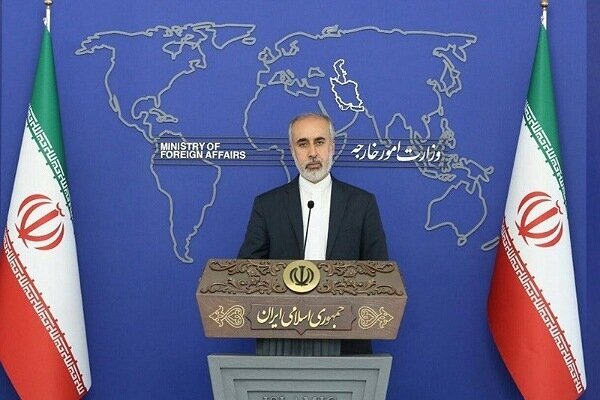Ball in Washington court to carry out prisoner swap deal with Iran: FM spokesman

TEHRAN- It is now "up to the U.S. administration" to determine whether or not it wants to uphold its half of the bargain, according to the spokesman for Iran's foreign ministry. Tehran is prepared to put into effect the agreement on the exchange of detainees with Washington.
"We have already stated that we are willing to exchange prisoners with the U.S., and we remain willing to do so. The issue has been the subject of several negotiations, and the parties have come to the required agreements. The U.S. government must now determine whether or not to put this agreement into effect." In an interview with ISNA that was published on Sunday, Nasser Kanaani stated, "We are prepared to implement it."
The Joint Comprehensive Plan of Action (JCPOA), often known as the Iran Deal, was being negotiated by international powers at the time the agreement was made in Vienna.
Tehran has stated time and time again that it is prepared to swap prisoners with the U.S. in accordance with the arrangement and separately from the nuclear deal, which the U.S. unilaterally ended in May 2018 despite Iran's complete and rigorous compliance.
Kanaani further emphasized that the Islamic Republic will never give up its own political independence for the sake of specific diplomatic ties, vehemently refuting claims that Russia is impeding the Vienna negotiations on the restoration of the JCPOA and the lifting of sanctions against Tehran.
“The Islamic Republic of Iran will not give up its political independence for the benefit of ties with foreign nations on a diplomatic level. The talks to lift the sanctions have been conducted using the same strategy. As a signatory to the JCPOA, Russia has naturally taken part in the negotiations and offered opinions,” the official added.
There have been allegations that Russia is stalling the negotiations and preventing a deal amid the efforts to save the JCPOA. Russia and Iran both refuted such contrived claims.
Kanaani also denied reports that Iran was urged by Russia to postpone the deal until later in the winter. The Iranian diplomat continued by denying claims that Russia is interfering with the negotiations in the capital of Austria, emphasizing that it is the U.S. side's job to assume responsibility and contribute to the conclusion of the agreement.
It is only a blame game, Kanaani stated, because the United States of America periodically accuses both Russia and the Islamic Republic of Iran.
The foreign ministry spokesperson for Iran also highlighted that Russia and China have enabled and are aiding the development of Vienna talks, highlighting that the official views of Moscow and Beijing are wholly in support of the JCPOA revival negotiations and Tehran's stance.
“The U.S. administration is a party that withdrew from the talks and is currently coming up with rationalizations and preventing the conclusion of the final accord. It is vital to note that the Islamic Republic of Iran values its political independence highly and will not allow it to be swayed by the ideologies of any other nation,” according to Kanaani.
In May 2018, the United States, then led by former President Donald Trump, renounced the accord and reinstituted the unilateral sanctions that it had withdrawn.
In April of last year, months after Joe Biden succeeded Trump, the negotiations to save the deal began in Vienna, Austria, with the goal of determining how seriously Washington intended to rejoin the pact and lift sanctions against Iran.
Despite significant advancement, the lengthy negotiations were often interrupted by the U.S.'s indecision and delay.
Khalil Dardmand, an Iranian national who was detained by Saudi police in the holy city of Mecca in July, was also urged to be released. The top Iranian diplomat also urged Saudi Arabia to take meaningful humanitarian action.
Saudi Arabia broke off diplomatic ties with Iran in January 2016 when Iranian demonstrators stormed its embassy in Tehran following the Saudi murder of famous Shia cleric Sheikh Nimr Baqir al-Nimr.
When Donald Trump was president of the United States, a previous ally of the Saudi monarchs, the kingdom suddenly began a combative foreign policy toward the Islamic Republic.
Saudi Arabia recently demonstrated its desire to heal fences with Tehran and reestablish bilateral relations through diplomatic channels and third parties.
The two neighbors are still sharply separated over a number of international problems, including the Saudi campaign in Yemen.
